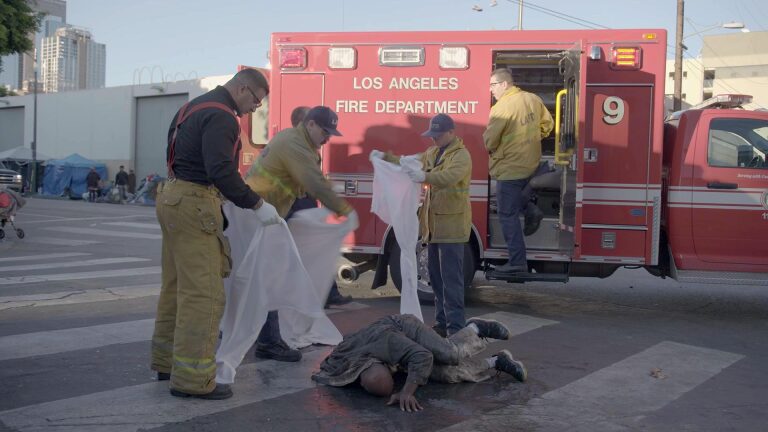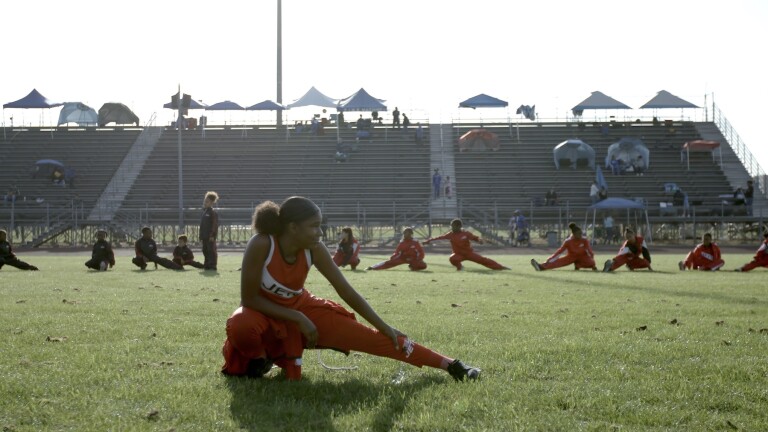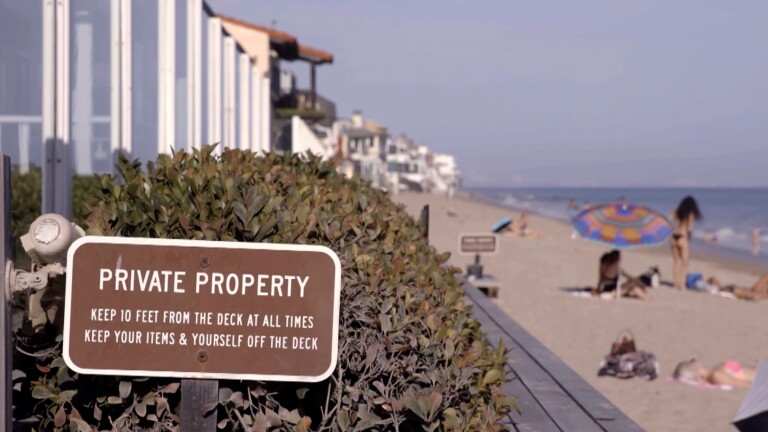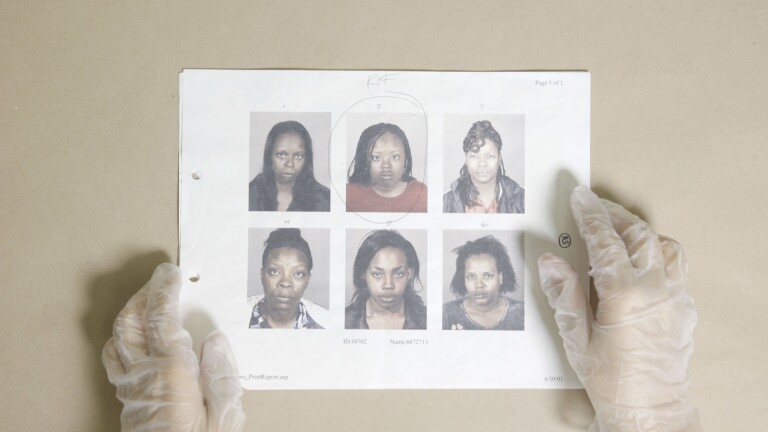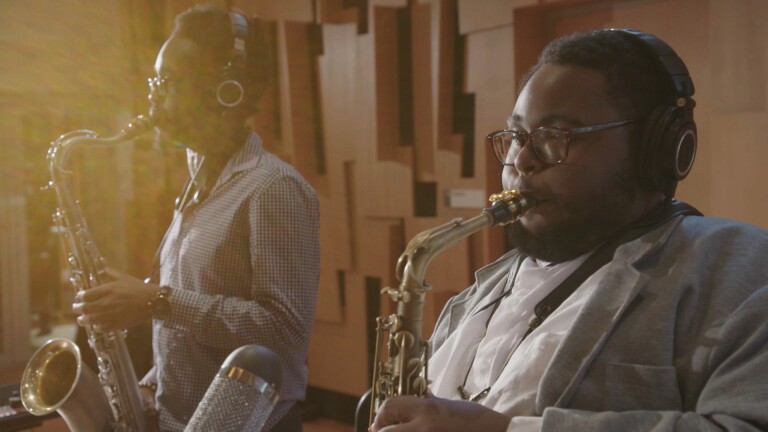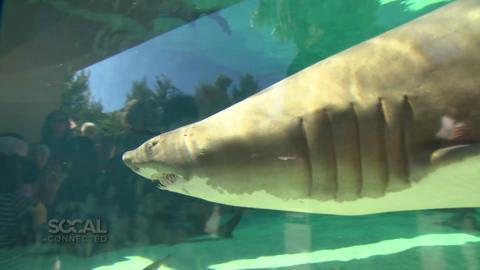
Voter Voices: Election 2012 Through the Lens of Two SoCal Cities
Tomorrow's vote will almost certainly turn on the state of our economy. We learned last week that the economy added 171,000 jobs in the month of October. The unemployment rate ticked up to 7.9 percent, but national numbers are only part of the story. They don't tell you how Americans feel about the country -- and about the future. So as we count down to decision day, Vince Gonzales has been out talking with Southern Californians from many walks of life, listening for clues to what they'll be thinking as they punch their ballot.
Transcript:
Gonzales: Luxury motorcycle manufacturer, Big Bear Choppers, creates high-speed works of art. From precision, computer-cut parts, and just the steel frames. The company founded by Mona and Kevin Alsop in 1998, builds bikes that can go for as much as 40,000 dollars. At their height, they were selling at least a hundred a month.
Mona Alsop: People were paying cash; people were taking money out of their homes. Everybody had cash. Everybody wanted toys and they were getting them.
Kevin Alsop: People were throwing money at you literally. I mean it wasn’t an issue to get paid ever.
Gonzales: But after years of building their business, Kevin and Mona lost everything, including their home, when the great recession hit, and demand for choppers virtually disappeared. Mona says she reached out for help, especially when she saw the banks and car companies getting bailed out.
Mona Alsop: I emailed the White House. We are an American-made company. We are manufacturing. We manufacture American-made products. We are exporting American made products overseas. They want our products overseas. We need help, and the help never came.
Gonzales: Big Bear Choppers was forced into bankruptcy. The firm survived, but the Alsop’s are now employees at the company they founded. And Big Bear Choppers is no longer located in Big Bear. The company had to leave that wealthy mountain resort community for a smaller facility in San Bernardino. A bankrupt city battered by the home foreclosure crisis, which has one of the highest unemployment rates in Southern California. The new location and their experiences have Mona and Kevin focused on the economy as Election Day approaches.
Mona Alsop: They say that there is a change, they say that it has gotten better, but most of us aren’t seen it. We aren’t seen what they are telling us that is better, so I’m looking forward to a change.
Kevin Alsop: It doesn’t matter whether you are a Republican or Democrat. Everybody wants to see the economic better.
Gonzales: The economy was also on the mind of every early voter we spoke to in San Bernardino.
Roberson: Mostly the economy.
Lopez: The budget, the economy.
Gonzales: Voters here seem to be going through a range of emotions, but one word kept coming up: hopeful.
Lopez: I would classify myself as more hopeful, and just looking forward to having some real progress in the next four years.
Roberson: I’m always excited about voting, and I’m hopeful that things are going to be getting better.
Lee: I’m hopeful because I see the economy improving.
Gonzales: Despite that "hope" from the perspective of many voters in San Bernardino, including those at Big Bear Choppers, the road to recovery still looks like a long, hard journey. But on the far side of Los Angeles County, the view is a little different.
Paul Ku: Once I start getting on a bike, and I start riding, I kind of forget; I’m just in that moment; and it’s kind of my mediation I guess. It’s kind of ironic. I'm on what drives me crazy, you know, trying to sell a bike, but this is kind of my getaway.
Gonzales: With his father and brother's backing, Paul Ku opened his first business, a bike sales and repair shop called City Grounds. It opened its door in Long Beach at the bottom of the economic downturn.
Ku: It was more of an opportunity to start something at a time when the economy was low. We decided if we could make it through now, then we should be able to be more successful, when the economy is actually a lot better.
Gonzales: His Long Beach bet paid off. He now has two more stores in Costa Mesa and Lynwood and a 22,000 square foot office warehouse in Irvine.
Ku: Aside from the social issues, it’s all about the economic issues. I think that’s on everybody’s mind. This election is what’s going to benefit the economy.
Gonzales: Unlike in San Bernardino, some people here in Long Beach seem to feel the tide has turned, and according to the October Federal Jobs Report, Long Beach and some surrounding areas had some of the highest job growth in the country.
Gonzales: This is one of those job hotspots, the Aquarium of the Pacific, where the squeals of delight, and the serenity of the tidal pools have been interrupted by a building boom.
Schubel: We're buzzing. We're very bullish. It's going to get better and our local, particular economy for the aquarium, is doing very well. We're having one of the best years in our entire history, so it's been a good time for us.
Gonzales: An October study found the aquarium now adds $57 million every year to the Long Beach economy. It employs over 300 people, and that number is going up. Thanks to an expansion that adds retail space and the ability to handle another half million visitors a year. Much to the delight of others on the aquarium job site, who say they, too, are feeling better as the election gets closer.
Figueroa: A year ago we weren't working, so now we're working. Now we're working every day now.
Gonzales: Over at Open a Long Beach book store, people are happy, too, despite the fact that Open is closing its doors. The owner Se' Reed, who is packing up her bookshop of nine years, says, believe it or not, that's a good thing.
Reed: In my case, I’m actually choosing to leave this location, because it doesn’t necessary fit what my needs are, for going forward with the store. But you know, funnily enough, even though I’m closing, because I want to expand and grow, not because I’m going away or being finishing it up. I'm not throwing in the towel. I’m knitting a bigger towel.
Gonzales: As this election day fast approaches, she describes herself as disappointed with the lack of economic progress, but says it's not all about her business.
Reed: I am not voting on the economy. I think we are all in the economy together. We are all just going to sink or swim together. I think we all kind of know that, but I think there are some really big differences environmentally and civilly. That’s how I am voting as a voter this year. Not so much as a business owner, but more as a human.
Gonzales: Back in San Bernardino, the work day is over, but one group of residents is still toiling away. These people are all studying hard to become new U.S. citizens.
Torres: I am excited, because I never vote, so I can do a good thing for this country, and for my family, and for me.
Gonzales: Many of these would-be future voters have familiar worries.
Brenda: We need more jobs. I need a good job, and I need to study at a good college.
Beltran: I have the same concerns, too, about the economy and creating more jobs. There are a lot of people in there, and they don't have a job or nothing like that. They need to provide for their families.
Gonzales: But they also share much of the optimism we found among voters across Southern California. Although none of them will be able to vote this year, they told us they look forward to that right and responsibility, because for them that first election day will be a dream comes true.
Draper: That day I’ll be crying, because i love this country. I mean, Ii have a lot of good feelings, and I’ll be proud to walk in there and vote.

